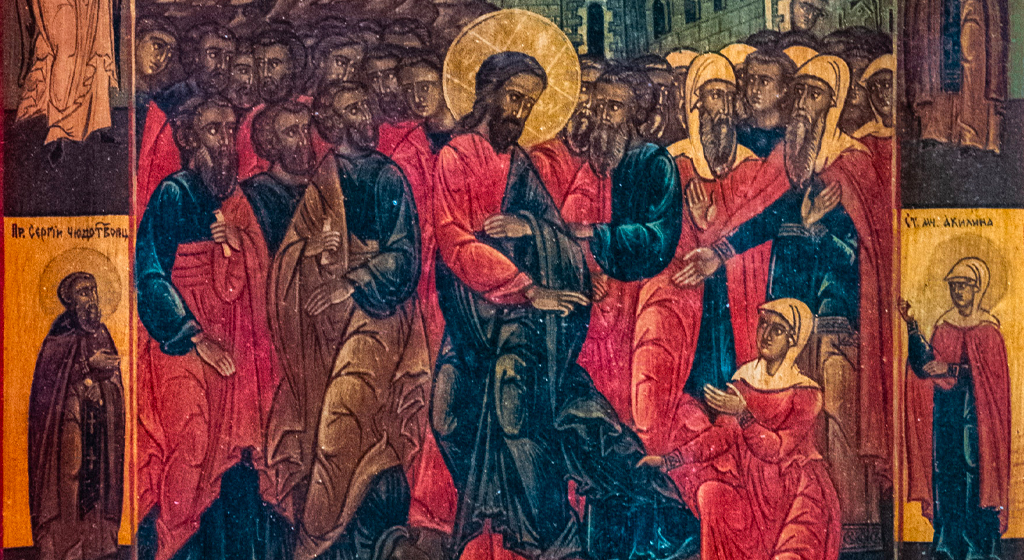Memory of the Poor
Reading of the Word of God
Alleluia, alleluia, alleluia
This is the Gospel of the poor,
liberation for the imprisoned,
sight for the blind,
freedom for the oppressed.
Alleluia, alleluia, alleluia
Ezekiel 1,2-5.24-28
On the fifth of the month -- it was the fifth year of exile for King Jehoiachin- the word of Yahweh was addressed to the priest Ezekiel son of Buzi, in Chaldaea by the River Chebar. There the hand of Yahweh came on him. I looked; a stormy wind blew from the north, a great cloud with flashing fire and brilliant light round it, and in the middle, in the heart of the fire, a brilliance like that of amber, and in the middle what seemed to be four living creatures. They looked like this: They were of human form. I also heard the noise of their wings; when they moved, it was like the noise of flood-waters, like the voice of Shaddai, like the noise of a storm, like the noise of an armed camp; and when they halted, they lowered their wings; there was a noise too. Beyond the solid surface above their heads, there was what seemed like a sapphire, in the form of a throne. High above on the form of a throne was a form with the appearance of a human being. I saw a brilliance like amber, like fire, radiating from what appeared to be the waist upwards; and from what appeared to be the waist downwards, I saw what looked like fire, giving a brilliant light all round. The radiance of the encircling light was like the radiance of the bow in the clouds on rainy days. The sight was like the glory of Yahweh. I looked and fell to the ground, and I heard the voice of someone speaking to me.
Alleluia, alleluia, alleluia
The Son of Man came to serve,
whoever wants to be great
should become servant of all.
Alleluia, alleluia, alleluia
Starting from today, the Liturgy presents excerpts from the prophet Ezekiel. Very little is known about him. He was a married man and a member of a priestly family that had been formed in the shadow of the Temple of Jerusalem, but he lived out his ministry as a prophet mostly in the Babylonian diaspora. In this situation the prophet had the task of helping the people of Israel to understand again the covenant with God. Ezekiel's vocation is a call that occurs in the new condition of Israel. God always speaks in human history of men and women to make salvation possible even in situations that looked impossible like that of an exiled people. We are in the first chapters of the book. God manifests himself to the prophet with the typical connotations that accompany his presence elsewhere: violent wind (remember Pentecost), a cloud (that accompanied Israel in the desert), fire (on the mount Sinai). In difficult times God does not hide, He prepares His coming, because He does not abandon His people. He, who dwelt in the temple of Jerusalem (and Ezekiel knew this well as a priest) now manifests Himself here too, in exile. This is why the prophet has to describe his arrival with various images: the four human beings, but also with animal likenesses (which later on will be the cherubim (10:1ff), then the chariot, the firmament, on which the throne rests, on which the glory of God, His visible presence, towers. The whole creation, men and women, animals, the firmament, are involved in this manifestation, as if to say that something extraordinary and absolutely new is happening. That is why, in front of the glory of the Lord, the prophet cannot but stop: "When I saw it, I fell on my face, and I heard the voice of someone speaking." Here is the meaning of that manifestation of God: He wants to speak to the prophet, for this reason he must see and welcome Him.
